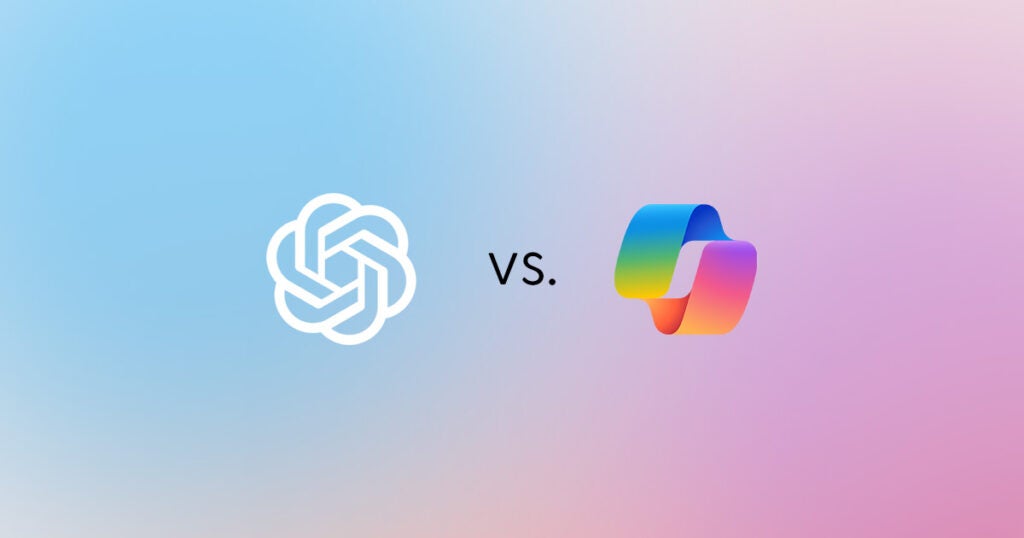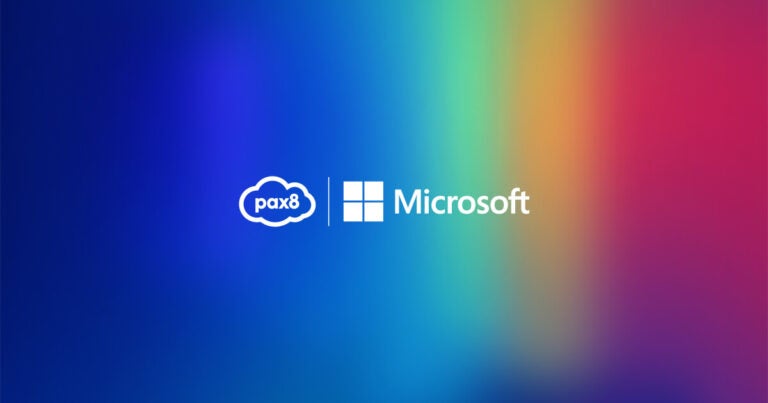As AI continues to integrate more deeply into everyday business operations, two standout tools have become essential: ChatGPT and Microsoft Copilot. For managed service providers (MSPs), knowing the strengths and weaknesses of these platforms is key to advising small- and medium-sized business (SMB) clients on how to best leverage AI for their growth and efficiency.
In this blog, we break down the pros and cons of ChatGPT and Microsoft Copilot, helping you guide your clients toward the right choice for their needs.
The role of AI in daily business operations
Before we dive into the comparison, it’s important to highlight how AI is already impacting today’s workplace. According to recent reports, 75% of knowledge workers now use generative AI tools like ChatGPT and Microsoft Copilot to streamline tasks, boost productivity, and enhance decision-making.
However, maximizing these tools requires more than just flicking the “on” switch at your client’s organization. AI is only as good as the data on which it’s trained, and integrating the organization’s data into your tool of choice is crucial to making the most of it.
In addition, ensuring proper data governance, privacy, and security is critical. To use generative AI responsibly, businesses must make sure that AI platforms are configured to access only relevant data without compromising cybersecurity. For example, pulling data from an organization’s SharePoint requires strict governance compared to querying personal OneDrive files. This balance between accessibility and security is essential for SMBs looking to adopt AI responsibly.
ChatGPT vs. Microsoft Copilot: a side-by-side comparison
With security concerns managed, let’s take a closer look at the differences between ChatGPT and Microsoft Copilot to determine which platform makes the most sense for your SMB clients.
ChatGPT: a versatile AI chatbot
Since its launch in late 2022, ChatGPT has revolutionized how we interact with AI. Built by OpenAI, this chatbot uses large language models (LLMs) to deliver responses in various formats, from writing marketing copy to answering complex technical questions. ChatGPT excels in flexibility and user-friendliness, allowing even non-technical users to generate useful content with minimal prompts.
However, when it comes to deep integration within a company’s infrastructure, ChatGPT has limitations. The standard version doesn’t natively connect to internal systems like Microsoft 365. This means that while it’s an excellent tool for content generation and conversational AI, it may not easily pull from internal company data unless configured specifically with enterprise-grade features.
Microsoft Copilot: a secure AI companion that integrates with your data
Microsoft Copilot is built into the Microsoft 365 ecosystem, making it a natural extension for businesses already using tools like Teams, Word, and Excel. One of Copilot’s key advantages is its ability to securely integrate with internal company data—allowing users to create, analyze, and manipulate information within the safety of their organization’s data environment.
For clients in heavily regulated industries like healthcare and finance, this level of security and data governance is critical. All queries and AI-generated content remain within the Microsoft environment, reducing the risk of data leakage. This makes Copilot a preferred option for organizations that prioritize security and need seamless integration with their existing workflows.
In addition, Microsoft has partnered with OpenAI, so both ChatGPT and Copilot access OpenAI’s GPT-4o as part of the output to user queries.
Choosing the right tool for your clients
When advising SMB clients, the choice between ChatGPT and Copilot largely depends on the specific needs of the business.
- For content creation and flexibility:
If the client is primarily focused on generating content (e.g., marketing copy, email templates, or customer responses), ChatGPT is an excellent option. Its conversational nature and ease of use make it ideal for quick turnarounds on various writing tasks. - For internal data use and security:
For businesses that require tight integration with the Microsoft suite of products and demand high security, Microsoft Copilot is the better option. Its ability to remain within a secure environment while utilizing organizational data makes it ideal for SMBs with sensitive data or regulatory obligations.
Implementing and using your AI tool
When gauging the effectiveness of any generative AI tool, proper implementation and usage is important to consider. For instance, if a user’s prompt isn’t clear, they won’t get a clear answer. And if the data connected to the tool is wrong or outdated, then the answers it gives will be, too.
Connecting the right internal data is key to a successful AI launch and usage. Work with your clients to ensure they have audited their data before diving headfirst into using generative AI that is based on it. And ensure your client has sufficient training available for its employees so they know how to use the tool properly (and how not to).
Why AI is a business imperative
No matter which tool you recommend, it’s clear that investing in AI is no longer optional—it’s a necessity. AI drives efficiency, innovation, and quality, making it an invaluable asset for SMBs looking to remain competitive. As AI continues to evolve, businesses that embrace these tools will have the upper hand in optimizing their operations.
Looking ahead, the integration of AI with other tools like Power BI and Power Automate will revolutionize how businesses manage and analyze their data. AI is not just improving individual tasks but is set to transform entire business ecosystems.
Conclusion: What’s the best fit for SMBs?
While ChatGPT shines in flexibility and ease of use, Microsoft Copilot stands out for its integration and security within the Microsoft ecosystem. The specific needs of your clients—whether that’s content creation, security, or data integration—will determine which tool is the best fit.
As an MSP, helping your SMB clients navigate this decision is crucial. Whichever path they choose, ensuring that their AI tools are secure and effectively integrated into their workflow is key to helping them maximize the benefits of AI.
Pax8 supports you in optimizing this incredible opportunity. Download our AI Readiness Playbook to learn how to guide your clients in building secure, AI-driven businesses. In addition, we hold data and AI masterclasses for MSPs looking to learn about the practical applications of AI in SMBs, exploring common business challenges and AI-driven solutions. Check out our events page for upcoming sessions, as we look to include more AI-specific topics.





